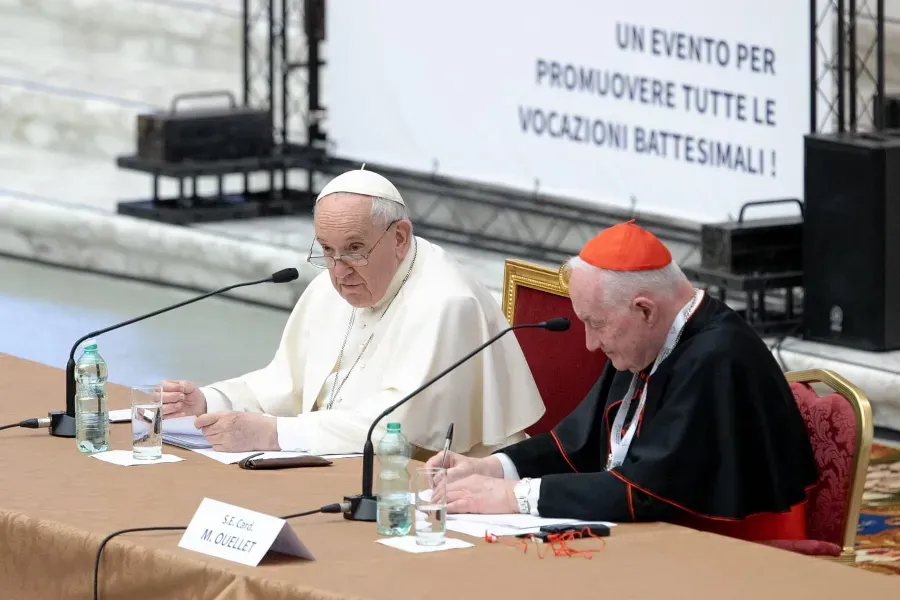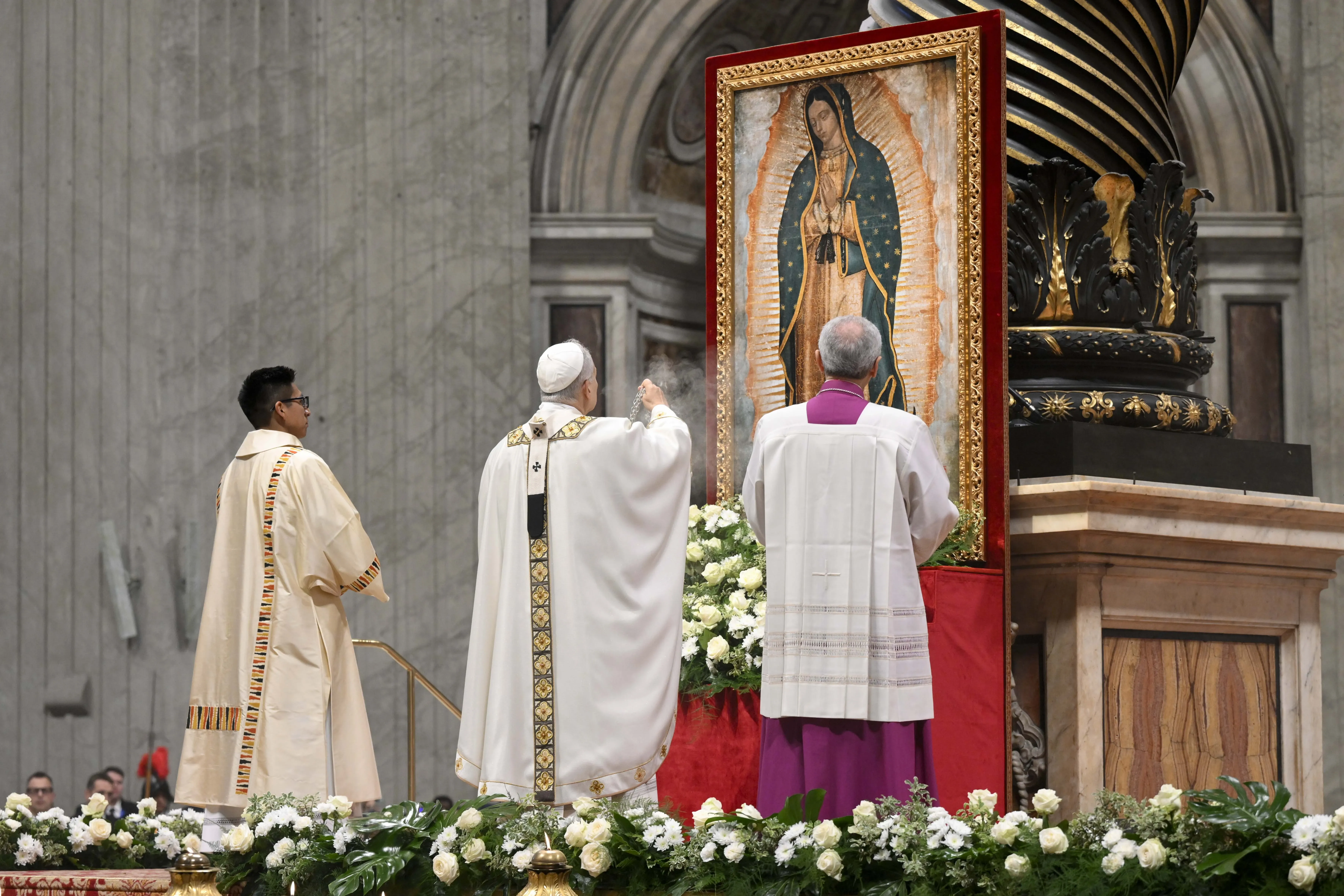“I prefer instead the response born of a trusting acceptance of reality, anchored in the wise and living Tradition of the Church, which enables us to put out into the deep without fear,” he said.
Pope Francis warned his listeners that many crises in the priesthood resulted from a poor prayer life and a lack of intimacy with God, which reduces the spiritual life “to mere religious practice.”
“The intimacy born of prayer, the spiritual life, concrete closeness to God through listening to his word, the celebration of the Eucharist, the silence of adoration, entrustment to Mary, the wise accompaniment of a guide and the Sacrament of Reconciliation… Without these ‘forms of closeness,’ a priest is merely a weary hireling who has none of the benefits of the Lord’s friends,” he said.
Prayer is also a bishop’s “first task,” he said, adding: “He must increase, I must decrease, says St. John the Baptist.”
To have a good relationship with God, finding moments of silence throughout the day, is key, he noted.
(Story continues below)
This silence, he said, is often avoided because it can be uncomfortable. Instead of feeling peace, we feel emptiness, “and in order to keep from feeling that, we are unwilling to slow down.”
Work can become “a distraction to not fall into desolation,” the Jesuit pope said, referring to a central concept in Ignatian spirituality.
He encouraged priests and bishops to push through the uncomfortable feelings of desolation and persevere in prayer.
He also advised them to seek fraternity with other priests, which “means choosing deliberately to pursue holiness together with others, and not by oneself.”
“As an African proverb says: ‘If you want to go fast, go alone; if you want to go far, go with others.’ Sometimes it seems that the Church is slow, and that is true. Yet I like to think of it as the slowness of those who have chosen to walk in fraternity,” he said.
Priestly fraternity and friendship also helps priests live a life of celibacy with more serenity, Francis said.
“Celibacy is a gift that the Latin Church preserves, yet it is a gift that, to be lived as a means of sanctification, calls for healthy relationships, relationships of true esteem and true goodness that are deeply rooted in Christ,” he observed.
“Without friends and without prayer,” he said, “celibacy can become an unbearable burden and a counter-witness to the very beauty of the priesthood.”
Pope Francis also urged priests to be close to people, saying that he is “convinced that, for a renewed understanding of the identity of the priesthood, it is important nowadays to be closely involved in people’s real lives, to live alongside them, without escape routes.”
He emphasized that people were looking for “shepherds in the style of Jesus,” not “clerical functionaries” or “professionals of the sacred.”
People need them to be “men of courage, ready to draw near to those in pain and lend a helping hand,” he said. “Contemplative men, whose closeness to people enables them to proclaim before the wounds of our world the power of the Resurrection even now at work.”
Addressing the crisis of priestly vocations, Pope Francis reflected on the need for life and fervor and a desire to bring Christ to others.
He said that even in communities where the priests were not particularly engaged or joyful, the community of the baptized can inspire vocations through its prayers and active and fraternal life.
“This is especially the case if that community prays insistently for vocations and has the courage to propose to its young people a path of special consecration,” he said.
“In looking at his own humanity, his own history, his own personality,” he continued, “each of us should ask not if responding to a vocation is agreeable or not, but whether, in conscience, that vocation brings to light within us the potential for Love that we received on the day of our baptism.”
Hannah Brockhaus is Catholic News Agency's senior Rome correspondent. She grew up in Omaha, Nebraska, and has a degree in English from Truman State University in Missouri.








